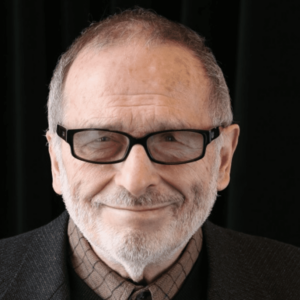Mark Twain might have extended one of his celebrated aphorisms by saying Canadian political history seldom repeats itself but often rhymes in free verse.
As of May 10, 2022 there were 24 days before the June 2 Ontario provincial election. The opinion poll aggregator 338Canada.com was still projecting that the Ford Nation Ontario PCs would win a majority of seats in the Legislative Assembly on election day. But the projected majority was lower than it had been a week before.
Meanwhile, the latest individual Nanos poll (May 7-8) put the PCs at 35.4%, Liberals 30.4%, New Democrats 23.7% and Greens 4.2%. Doug Ford was still ahead as preferred premier (29%). But Liberal leader Steven Del Duca was in second place (24.1%) — “more than a seven-point gain for Del Duca, who sat at 17 per cent support when the last survey was conducted on May 2.”
All this lends somewhat greater intrigue to the question of just what might happen over the final 24 days of the Ontario campaign. And a little revealing light could be shed in this direction by the history of opinion polling over the final 24 days of the 2015 federal election campaign in Canada.
Like the Ford Ontario PCs in 2022, the 2015 Harper Conservatives went into the campaign with a majority government. Many thought they would win another four-year term in office.
During the summer of 2015 it was not the Trudeau Liberals who seemed to be challenging this prospect. It was Tom Mulcair’s unusually Quebec-friendly New Democrats. By the middle of September, however, it was clear enough that Tom Mulcair was not going to form the first New Democratic federal government in Canadian history.
The 24 days before the federal election on Monday, October 19, 2015 began on Saturday, September 26. And the Harper Conservatives finished first in seven of the next 10 polls. A Mainstreet Research poll released on October 1 put the Harper Conservatives at 37% support, and the Trudeau Liberals at only 29%. From here Conservatives placed first in polls released on October 5, 6, 7, 9, and 10!
By now the Trudeau Liberals were showing some strength. They also finished first in polls released on October 1, 2, 3, 4, 5, 6, 7, 8, 9, and 10. But it was not until October 11 — only eight days before the actual election on October 19 — that the Liberals took the unchallenged lead in all subsequent polls that would blossom into their ultimate 2015 majority government.
Liberals alone finished first in the final 22 public polls from October 11 to October 18. But even during the last week of the 2015 federal campaign there was great respect for the Harper Conservatives’ almost 10 years in office. On the eve of election day Maclean’s magazine was still contemplating the prospects for another Harper Conservative minority government — this time possibly following the fate of Frank Miller in the 1985 Ontario provincial election!
Back in the present, as of May 10, 2022 the opinion poll aggregator 338Canada.com was, again, still projecting that the Ford Nation Ontario PCs would win a majority of seats in the Legislative Assembly on June 2.
But will things still look this way eight days before the 2022 Ontario election? Is there any room for some kind of big enough surprise?
There still seems very little in the 2022 Ontario polling to suggest that any party other than the Ford PCs is at all likely to win the largest number of seats in the Legislative Assembly. And the first leaders debate on northern issues in North Bay on May 10 arguably did little to change this picture.
Yet the latest Nanos poll (May 7-8) which put the PCs at just 35.4% of the province-wide popular vote does hint at a Ford PC minority rather than majority government. And with all three major opposition leaders already having expressed their reluctance to support such a thing, there are good reasons to wonder how long it could last.
For the moment voters who find the prospect of four more years of a Ford Nation PC majority government utter anathema can take at least some heart. The possibility of a highly unstable Doug Ford minority government has still not been altogether banished from the 2022 Ontario campaign.
Beyond this the 2015 Canadian federal election may offer one final piece of advice to voters in Canada’s most populous province in 2022: Wait until the last week or so of the campaign before taking the opinion polls altogether seriously.






